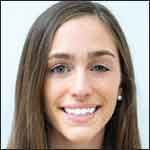The Academy’s Congressional Advocacy Day drew over 500 ophthalmologists to Capitol Hill on April 18 to advocate for our patients and the profession of ophthalmology.
Ophthalmologists and Advocacy Ambassadors, both resident and fellow trainees from across the country, met with their Congress members and legislative aides to discuss important legislation and Academy-sponsored bills.
"Advocacy is a team sport, and we are all in there together."

Advocacy Ambassadors attended Mid-Year Forum 2024. Pictured left to right: Kendall Goodyear, MD (PGY4, UCLA); Sagar Rambhia, MD (PGY3, UCLA); Elisa Ma, MD PhD (PGY3, California Academy of Eye Physicians and Surgeons); Junru Yan, MD (PGY3, UCLA); Leila Chew, MD (PGY2, UCLA); Jiwei Sheng, MD (2nd year retina fellow sponsored by the Retina Society).
It was a wonderful display of camaraderie and dedication to excellence in patient care, and it was exciting to be a part of it. After two years of participating in Mid-Year Forum, I have learned several key lessons:
Assess the Audience's Background
Though we never want to put the person we are advocating to on the defensive, asking about their familiarity with the subject is a great starting point because it allows you to meet them where they're at.
At my first-ever meeting in 2023, neither my state contingent nor I realized that the father of the legislative aide we were talking to was a physician that had to close his own family practice due to the rising costs of health care delivery. Had we known this before discussing reimbursements, we would have tailored our discussion and probably could have had a more meaningful impact.
Know Your Facts and Be Flexible
The Congressional Advocacy Day dinner briefing the night before our day on Capitol Hill was crucial. We learned about key issues in health care, about the legislative bills in the House and Senate that could make an impact on these issues, and highlighted important talking points. This provided a good foundation of knowledge on the issues we planned to discuss.
We also learned that if you are asked a question that you don't know the answer to, it is more than OK to say you don't know. If someone else in your group knows the answer, they will be able to jump in and offer back up. You can offer to follow up with the answer, which could also allow you to continue the conversation. Likewise, if you have a good response and see a team member struggling, feel free to politely jump in and share your knowledge. Advocacy is a team sport, and we are all in there together.
Leverage Personal Narratives for Lasting Influence

California ophthalmologists and Advocacy Ambassadors met with House Rep. Judy Chu, D-Calif. (center). Left to Right: Diana Shiba, MD, (Kaiser); Victoria Tseng, MD, PhD (UCLA); JoAnn Giaconi, MD (UCLA); Rep. Chu; Kendall Goodyear, MD (UCLA Advocacy Ambassador); Paul Zhou, MD (UC Irvine Advocacy Ambassador); Simon Fung, MD, MA (UCLA).
Specific patient- and constituent-related stories offer a lasting impression and make our efforts more personal. For example, when we were asking a representative for billions of dollars in funding for research, it was helpful to point out that a clinician scientist from his district — David Huang, MD, PhD — just won the National Medal for Technology and Innovation for developing optical coherence tomography (OCT) technology, which has revolutionized eye care. It provided our representative a tangible piece of success that was a direct result of their support.
Follow Up
Following up after meeting with legislators is crucial for building lasting relationships. It shows your commitment and keeps the issues you presented at the top of their minds. Sending a brief thank you email or letter along with any additional information demonstrates professionalism and helps maintain open lines of communication.
Passion Fuels Advocacy Efforts
Sharing your enthusiasm with others in your residency program not only inspires them to join us in our advocacy endeavors but also strengthens our collective voice. It is also important to maintain your passion beyond the Mid-Year Forum: Finding ways to stay engaged and informed, whether through local initiatives, online communities, or ongoing education, keeps the fire burning even when you're away from the energizing atmosphere of advocacy events.
I would like to thank all the state, subspecialty, and professional societies who sponsored Advocacy Ambassadors to participate in Congressional Advocacy Day. Trainees represent the future of our professional advocacy, and being able to participate early on in our careers is critically important to developing the skills needed to turn our efforts into results.
It also gives us the opportunity to bring contagious advocacy-related excitement and passion to our co-residents, which is important to make our collective voice heard.
 About the author: Kendall Goodyear, MD, is a PGY4 at UCLA and the incoming American Society of Ophthalmic Plastic and Reconstructive Surgery (ASOPRS) fellow at TOC Eye and Face in Austin, Texas. This is her second year serving as an Advocacy Ambassador. She was sponsored by UCLA-Stein Eye Institute.
About the author: Kendall Goodyear, MD, is a PGY4 at UCLA and the incoming American Society of Ophthalmic Plastic and Reconstructive Surgery (ASOPRS) fellow at TOC Eye and Face in Austin, Texas. This is her second year serving as an Advocacy Ambassador. She was sponsored by UCLA-Stein Eye Institute.